Hello community,
Today I'm back with my Weekly Post, hopefully to serve as inspiration for some of you. As parents or educators, we all look up for ideas and activities to try with our little ones in order to help them grow smart and form a beautiful rounded cognitive base.
After spending more than half an hour searching through my computer's folders what to share this time, I thought it's best to start with....making sense, right?
THE BEGINNING.
What does this mean? Well, everything has a start, agree? No matter what domain or process, action or whatever. Even preparing to be a parent has a start or searching for a car you want to buy, cooking a meal, etc.
What I mean though is that I'm mostly reffering to our start, mine and my child's, that moment when we started early education at home. And more specifically, when I was intentional with learning, when I started to prepare all kind of activities, games and play strategies in order to grow his cognitive skills.
I'm talking about the beginning of our journey together, such a crucial time for kids at this age, when laying the foundation for their future learning and growth.
There are some other things I did with my kid before this moment that I thought to be educational and something to be helpful in the future, let's say for example reading for/with Caleb everyday. (By the age of 9-10 months, he could recognize colors, animals or objects in all the books we have read before. I just had to ask him where's the frog and where the color red is, with no effort at all.)
However, I feel that my role as an educator began when we started to work with learning materials and activities, spending 2-5 minutes on our little table to resolve a task.
This was the moment when I realized that all the knowledge he has accumulated so far, now is the time to show it, start on that foundation.
(I've read a couple of books before, mostly Montessori education and that helped too. I knew how and where to start).
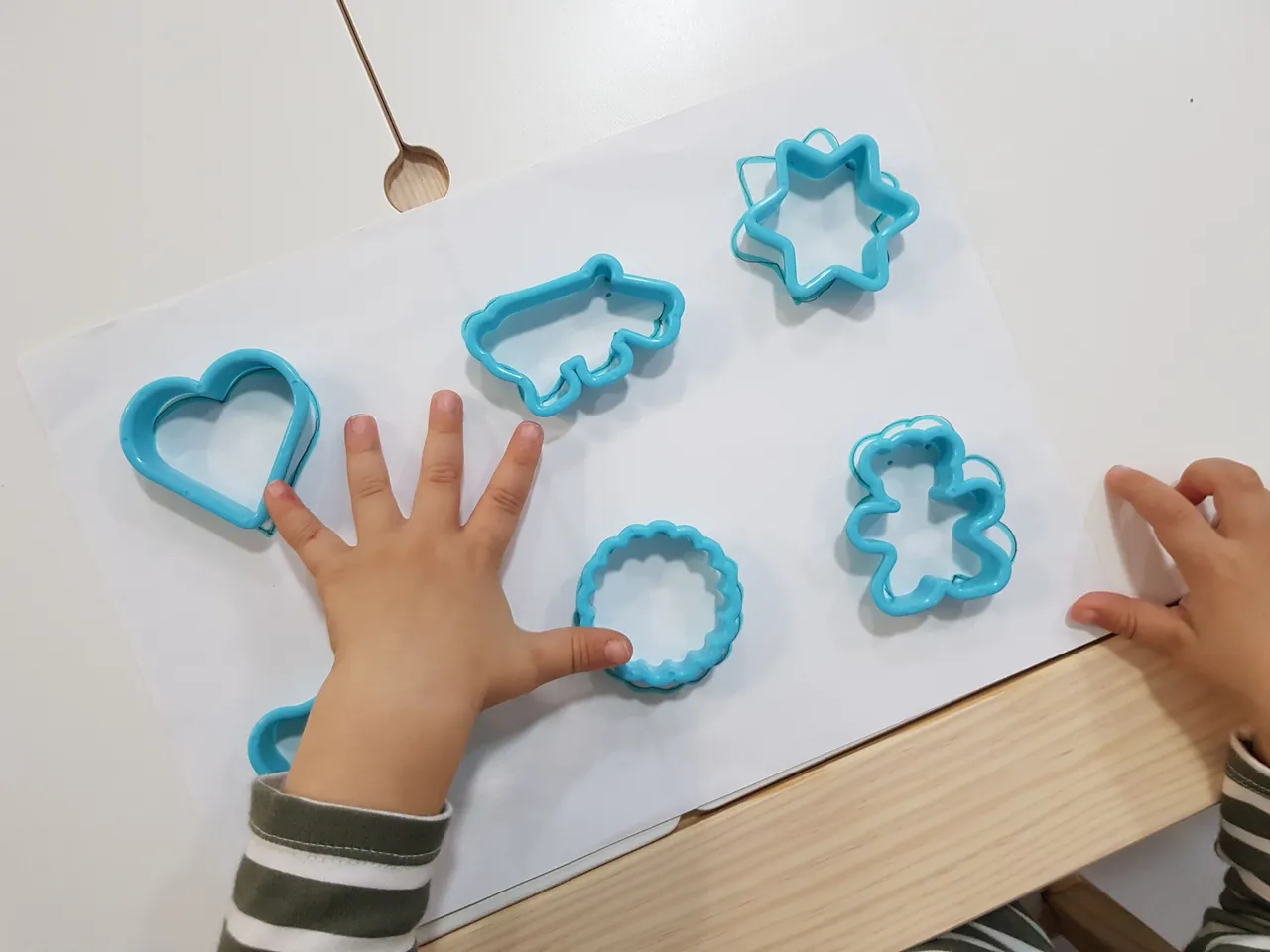
In a few words, after all that reading, I understood the concepts of :
Fine Motor Skills & Sorting
These are the first cognitive skills to work on when children are really really young. Sorting. Shapes. Colors. Recognition. Patterns. Matching objects. Vocabulary. These are the words to describe early concepts to introduce to young kids.
I understand that parents do what they know best on a specific time and always is room for improvement or changes. At that time, I thought this is appropriate to try with my kid and so we embarked in our learning journey. My kid was ready. His little brain was amazing and he was so eager to learn! I could not have gone further if it wasn't my kid's interest in learning. You know It's hard to work with a kid who cognitive speaking, isn't ready. You can't just teach a kid to count if they don't understand the concept of numbers and measurements.
So, Caleb was 1 year and 3 months old when we did our first sorting activity. At that time, I was obsessed to try all those DIY activities for babies I could find on internet.
Here it is! So simple you couldn't believe it.
Sorting beans
| I only told him this: white goes to white beans and red beans goes here, to red beans cup. No other explanations. I showed him once and thats it. | 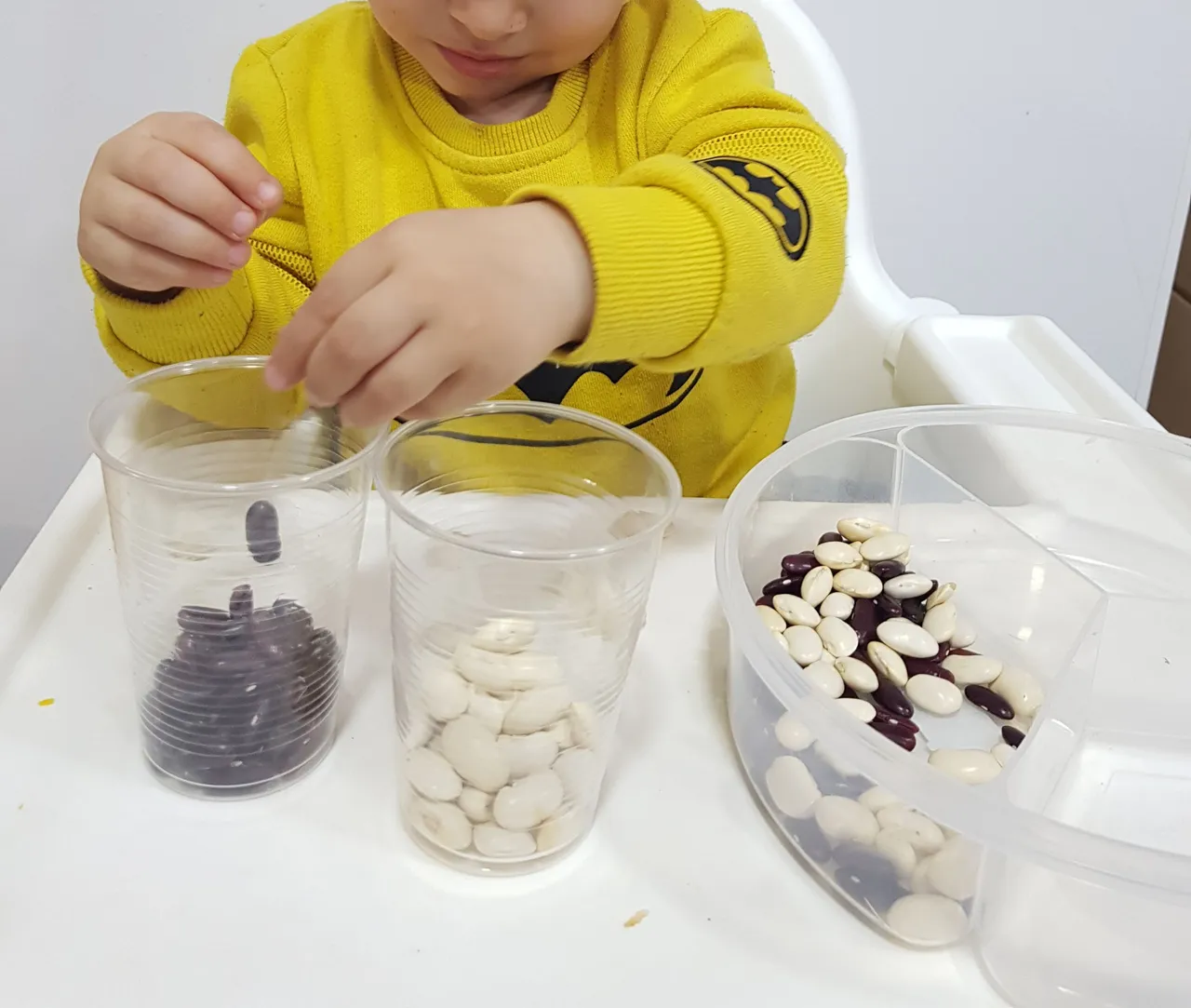 |
|---|
!! Just watch out and remain next to your child, raw beans are very toxic if ingested and plus, there's a possibility that kids might try put those in their mouth. So just be careful. Caleb wasnt that kid to put in his mouth the objects we played with so for us it was just fine).
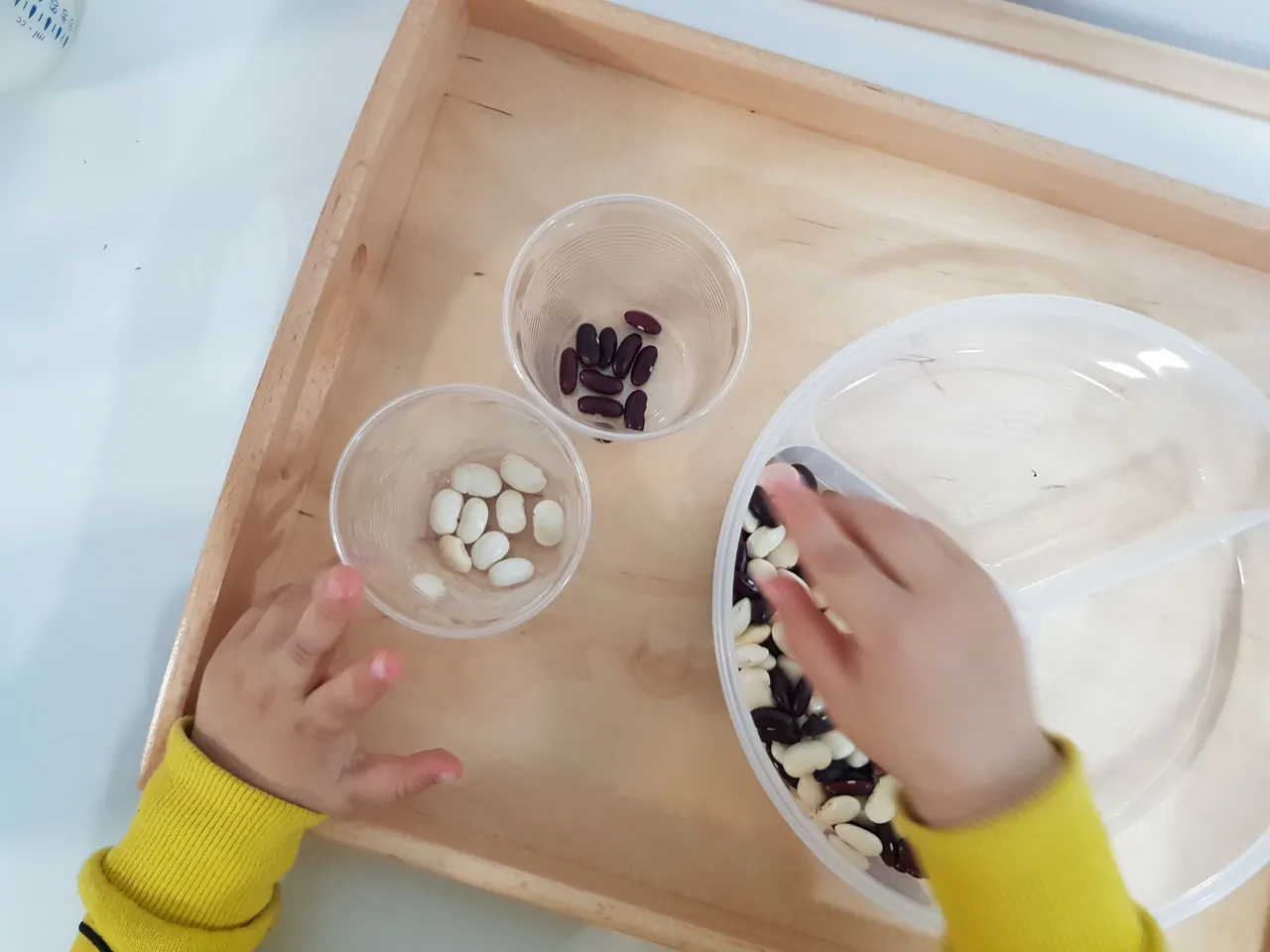
You'll see that kids are attracted to simple materials, the ones we all have at home such as kitchen tools and bowls, spoons, cups, trays, basckets etc.
For instance, here's this activity to work on FINE MOTOR SKILLS and CONCENTRATION, using a colander and some fluffy rainbow colored pipe cleaners.
You need to add them randomly throughout the colander and ask him to get them out. The more tangled they are, the more difficult the task will be and requires more patience.
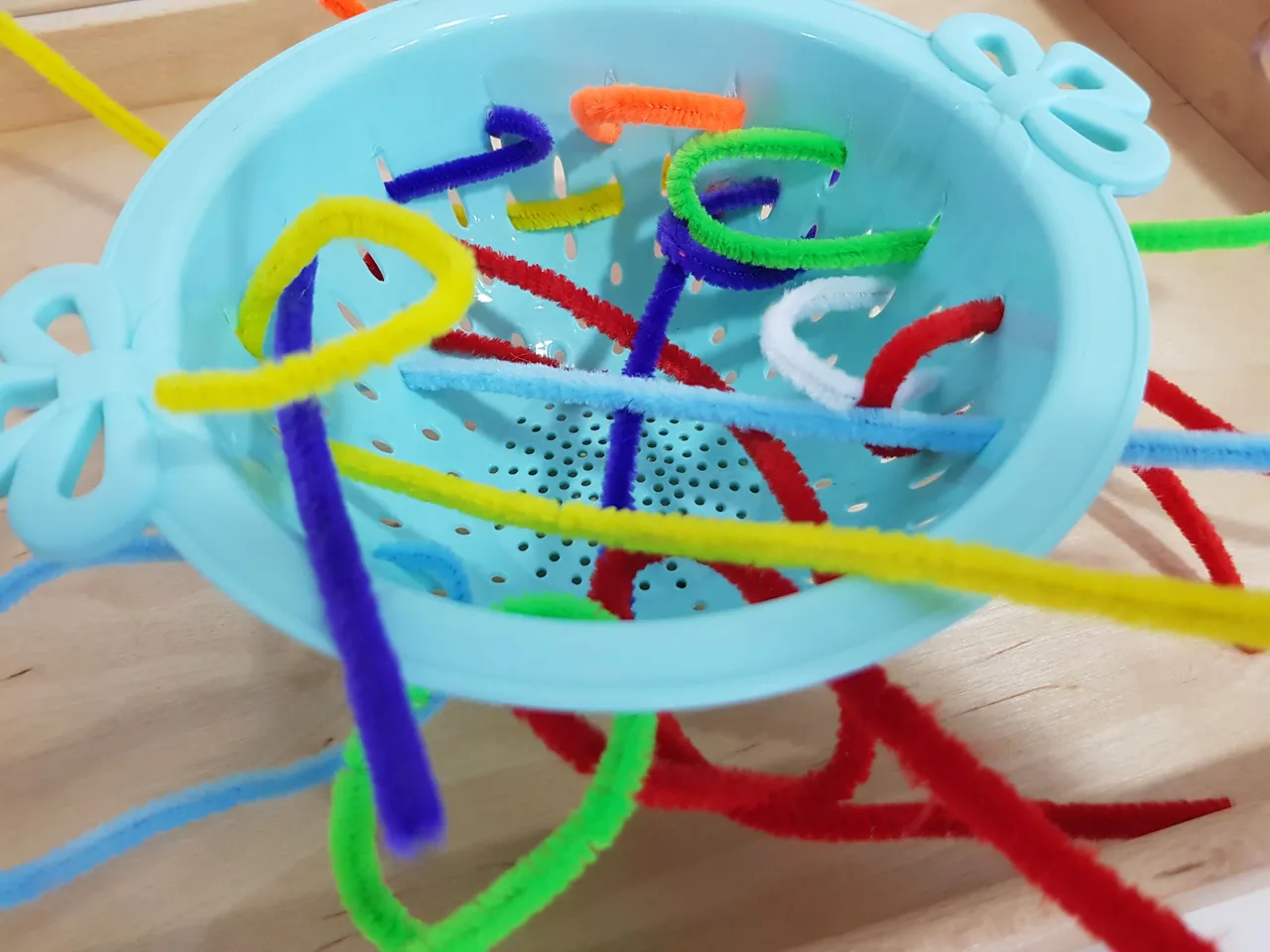
Or another idea would be to give him a few straws and encourage him to put them through the colander, let them come out from one side to the other.
I think this is a bit more challenging than the fist one and at times, when trying this activity (cause we repeat it several times, in different days) Caleb was frustrated when he couldn't succeed as he wanted.
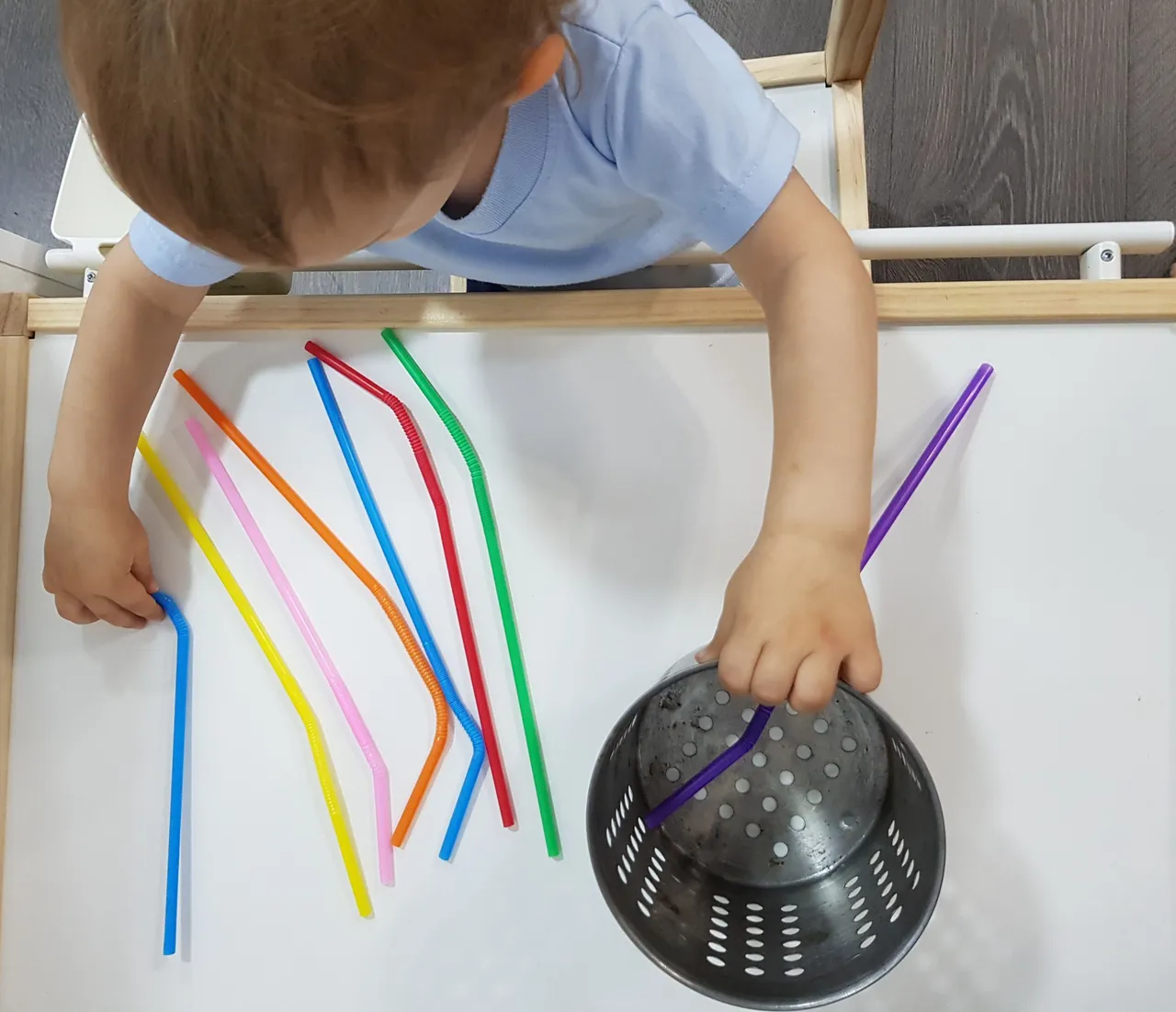 | 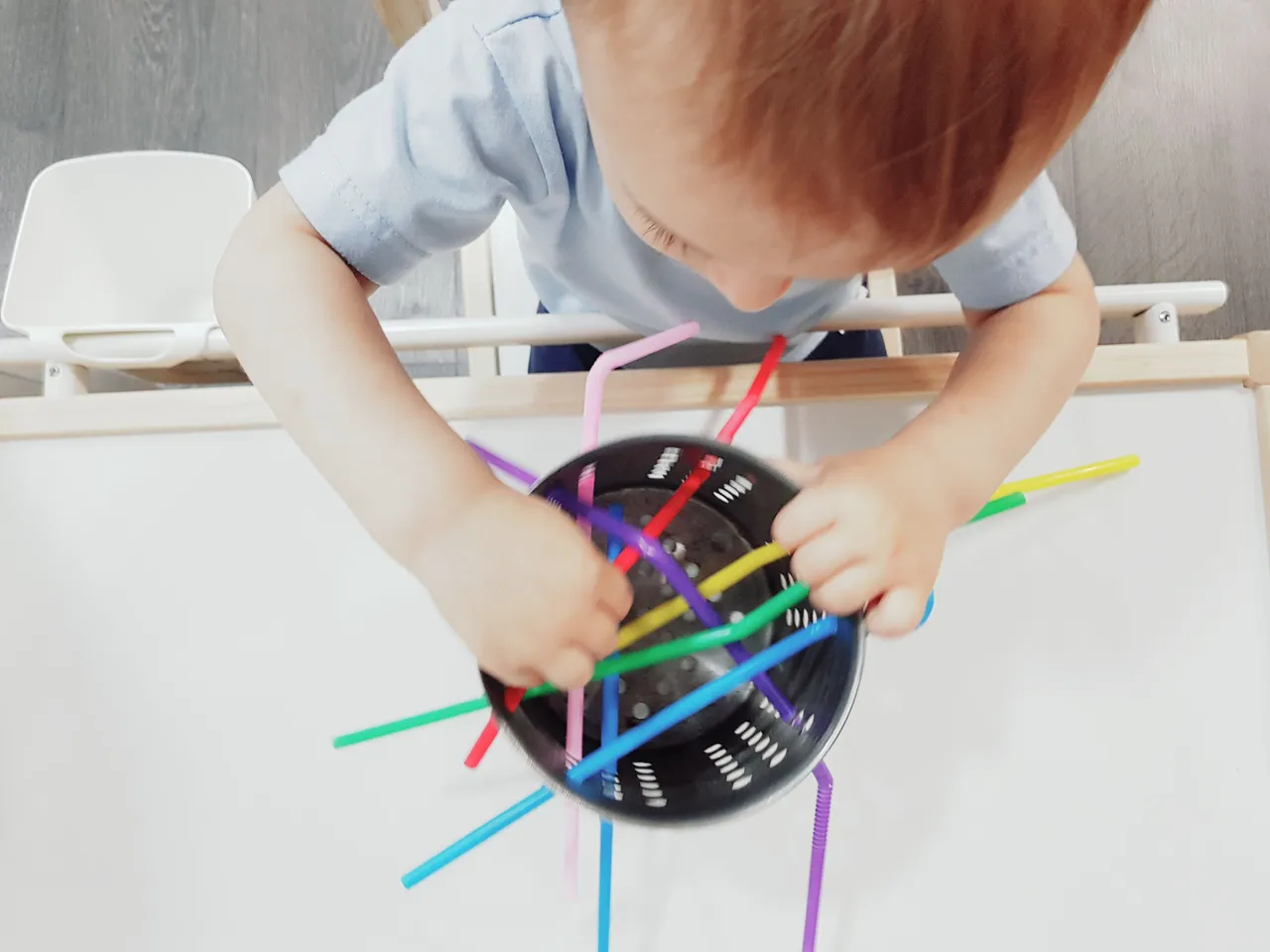 |
|---|
Another activity we did, I think it was actually the third one, was to match our cookie dough shapes. This was lovely and Caleb loved it.
It's something you can try with your kid and it's like making a puzzle for them. Their little brain is active and ready to form neural connections.
1. Size Match Activity.
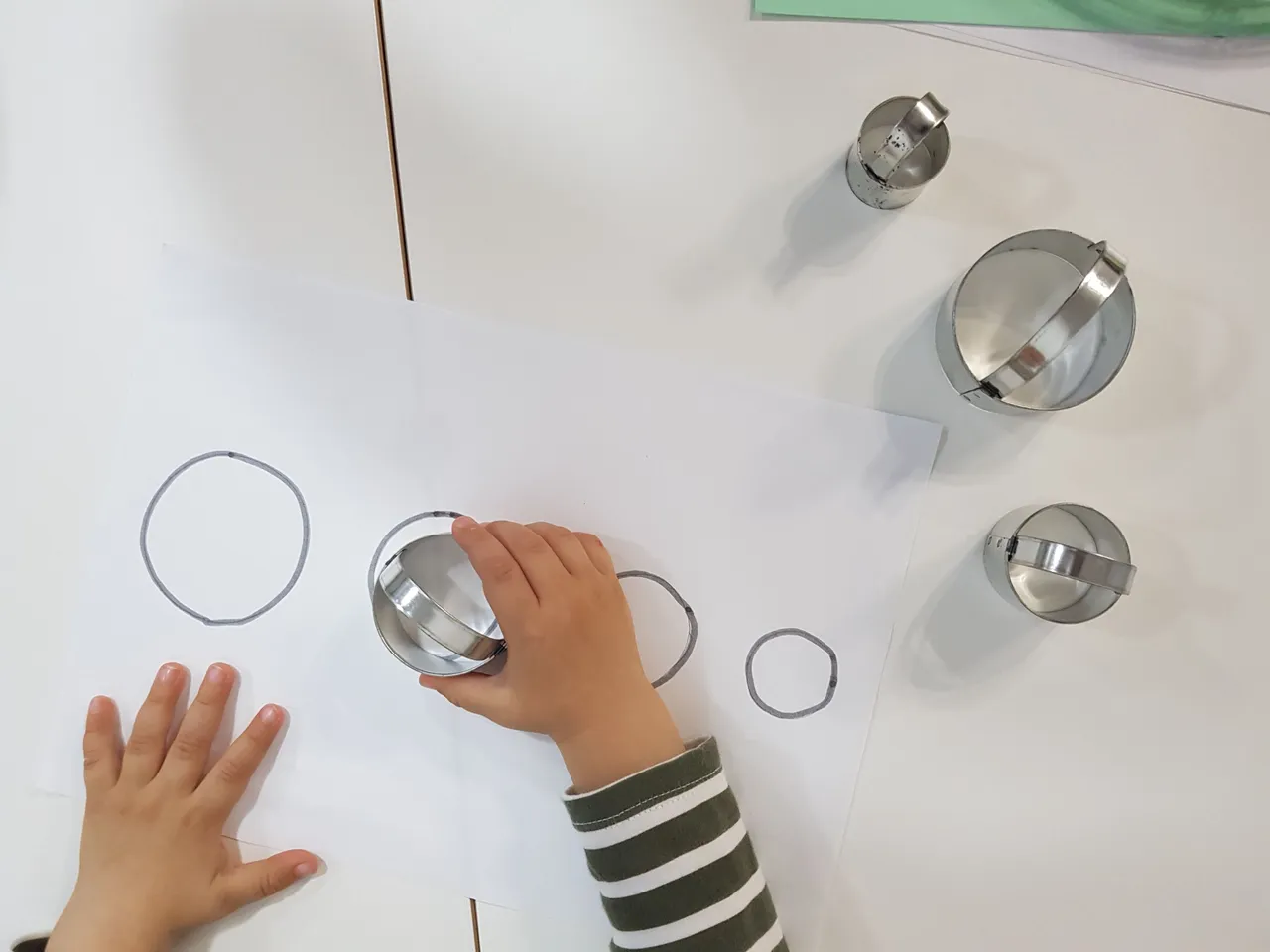 | 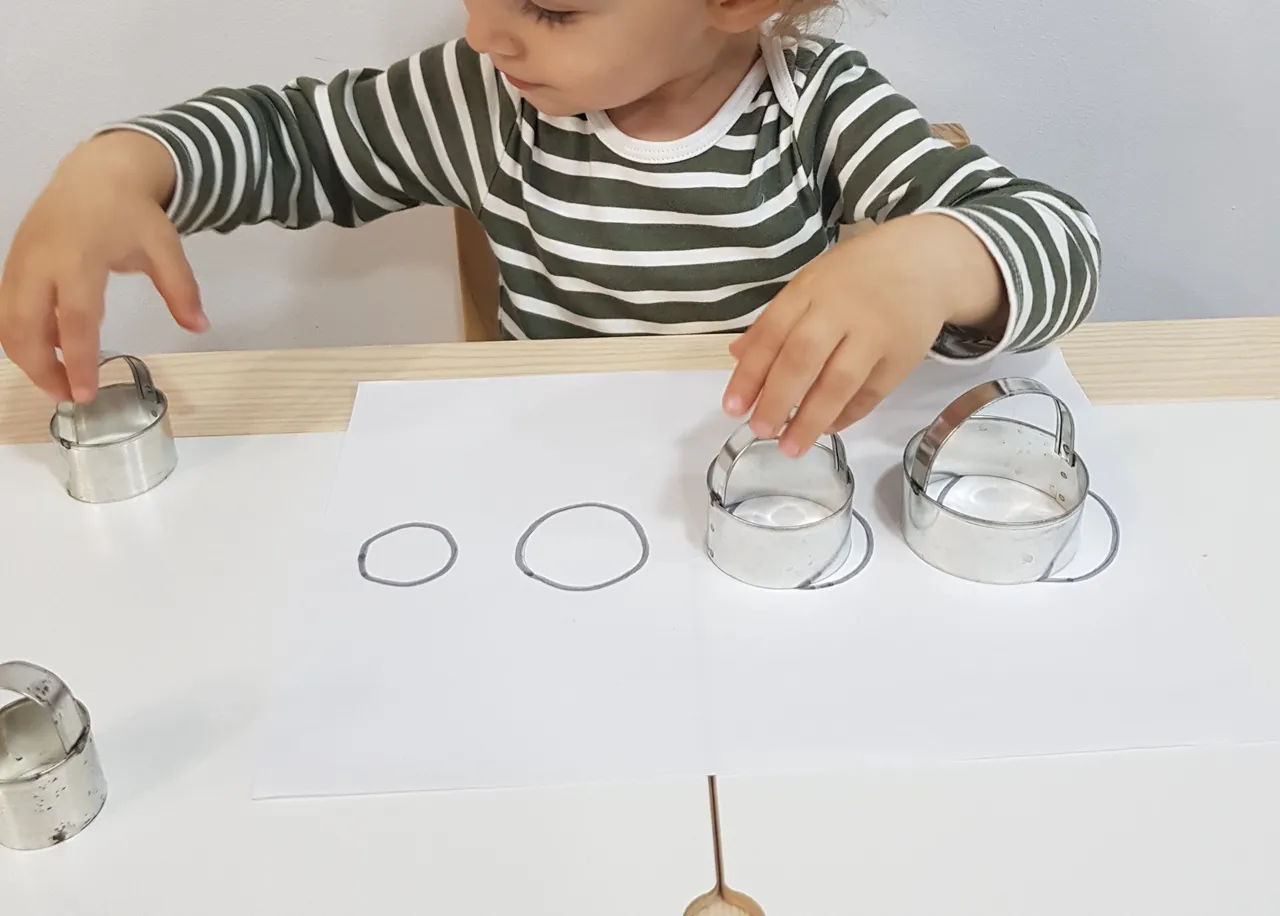 | 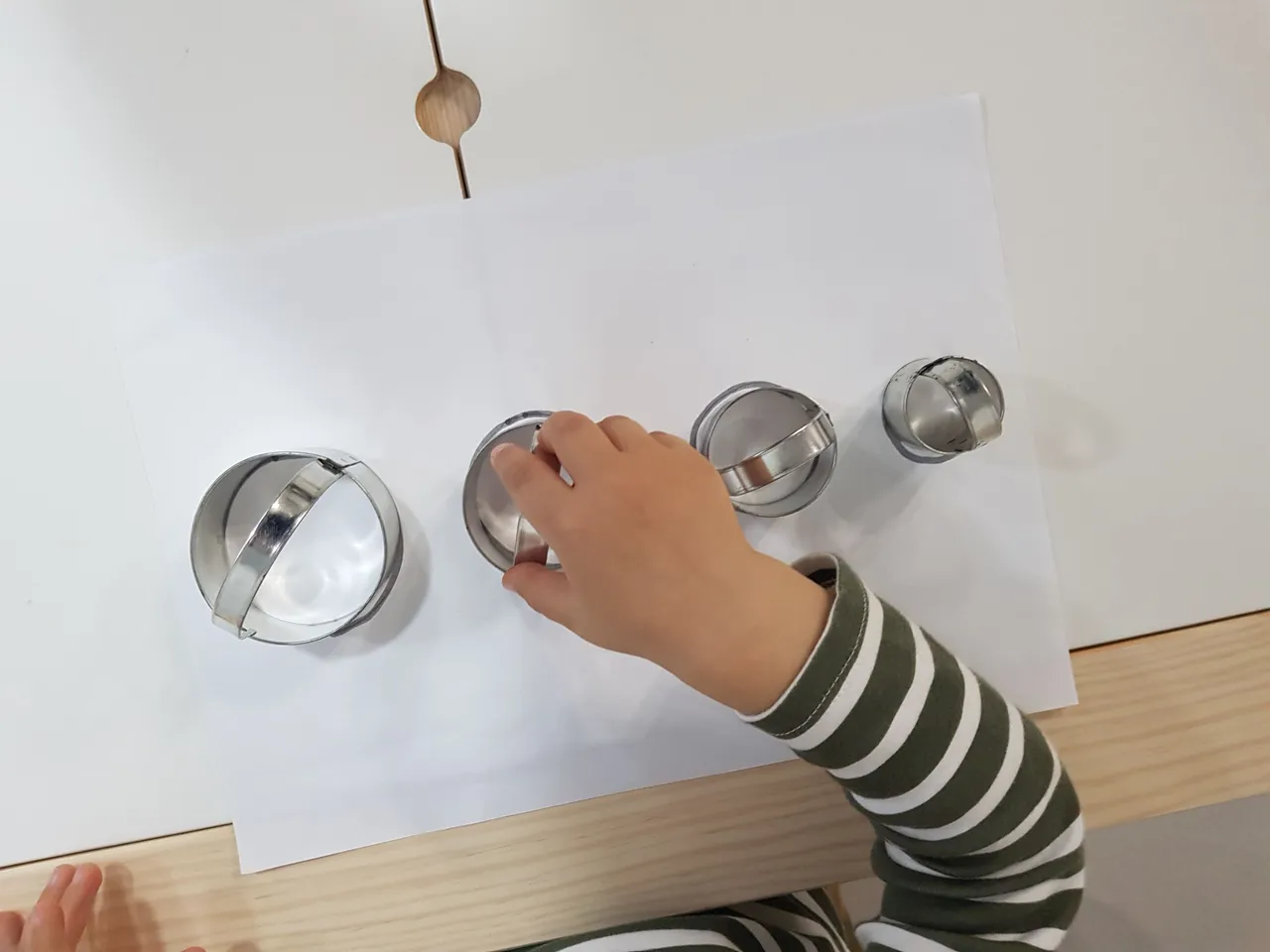 |
|---|
2. Cookie Shapes Matching Activity
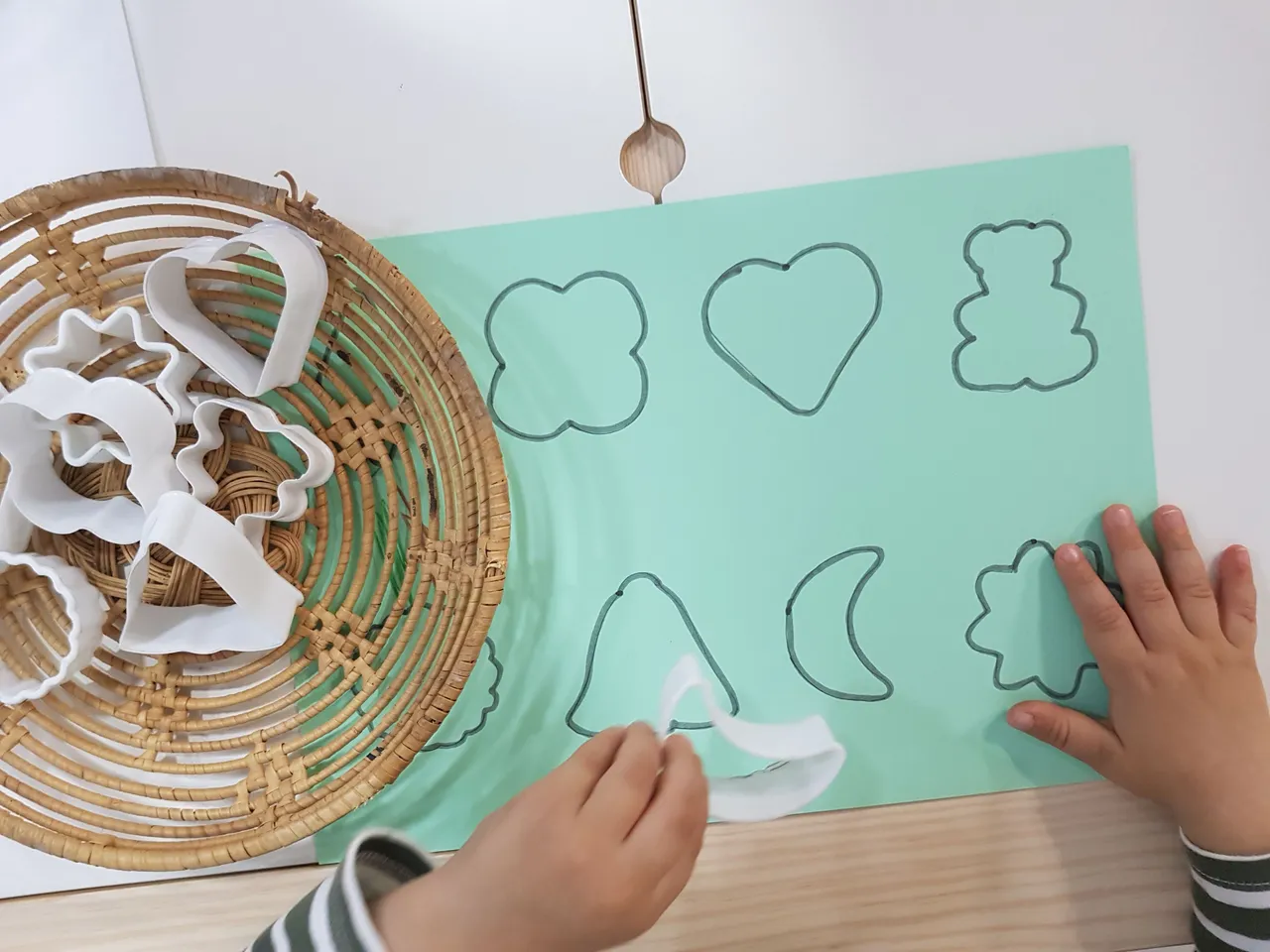 | 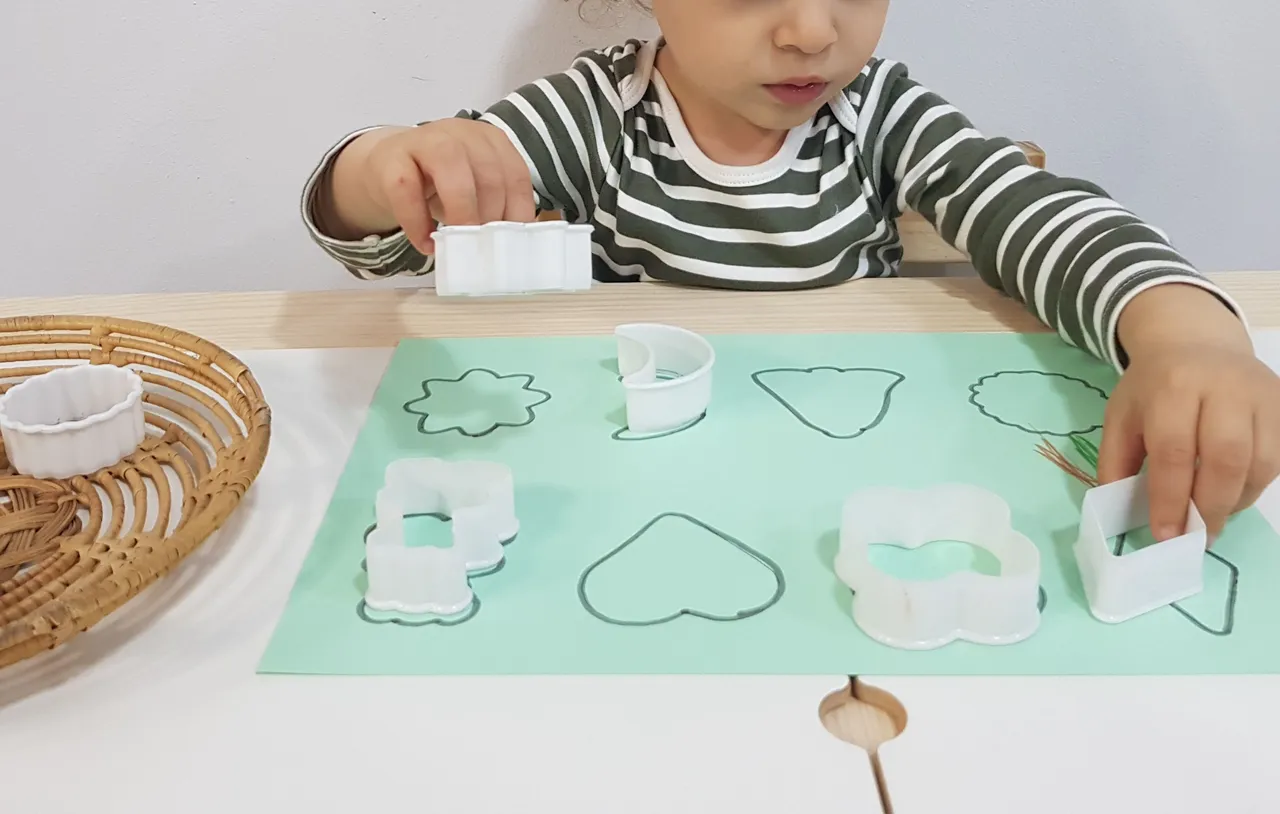 | 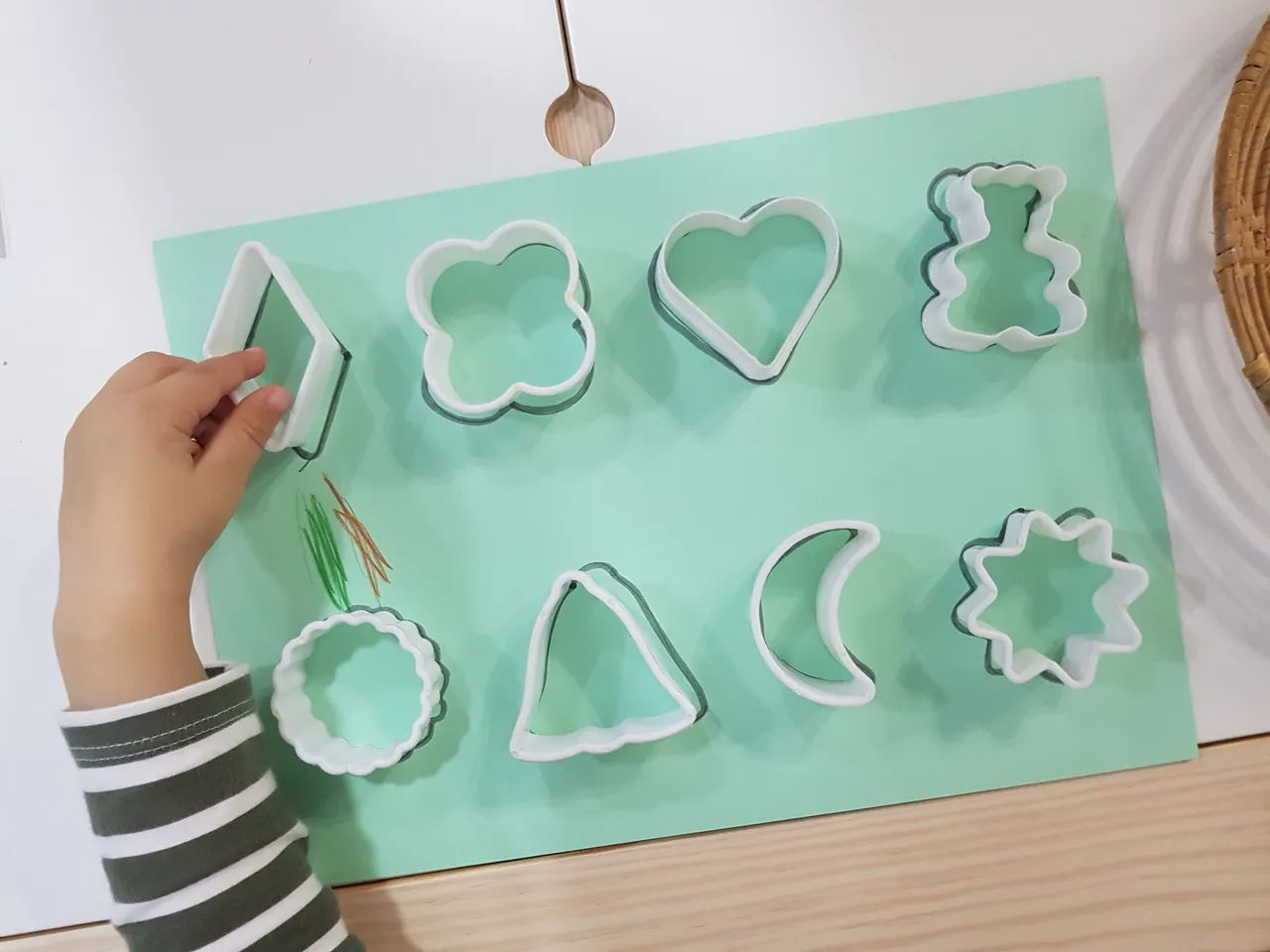 |
|---|
3. Shape Matching Activity
This was literally the third activity to try with my little one and I actually have a video of him matching these shapes together on the paper. It was such an excited moment, I remember it like being yesterday.
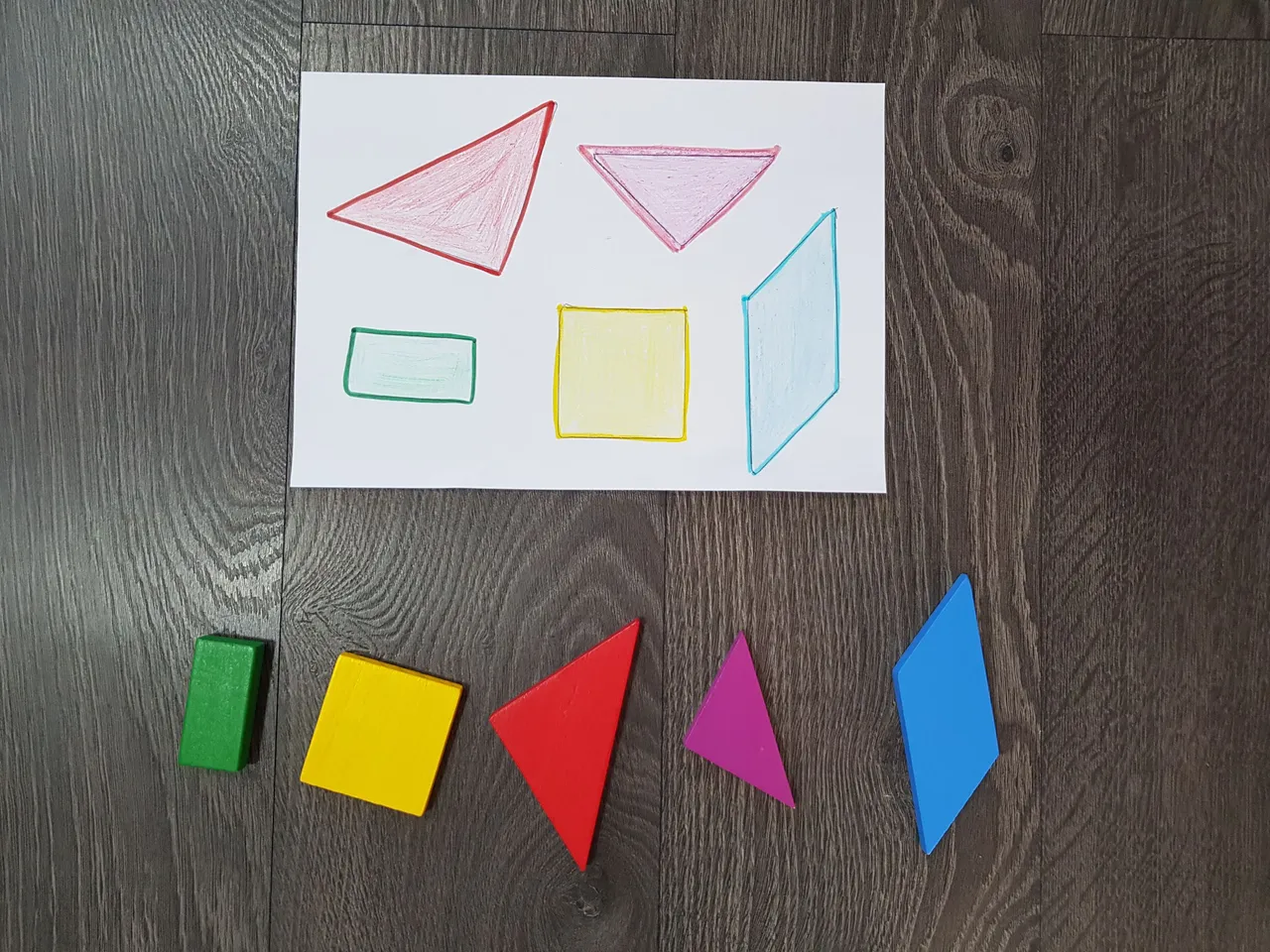
Fine Motor Skills Practicing
Both of these cases are engaging for little ones. Maybe you don't see it this way and you'd think it's easy for them. In fact, it may be. But to get it done, their little brains must be engaged. They need to concentrate. Dexterity and fine motor skills are developing when they grasp those little objects and put them into their place. Also, their muscles will become stronger.
You need to show you kid once how and what to do. They will understand. Just be precise and don't use too many words. Keep it punctual and also don't intervene if no needed.
We used some foam beads and colored wooden popsicles.
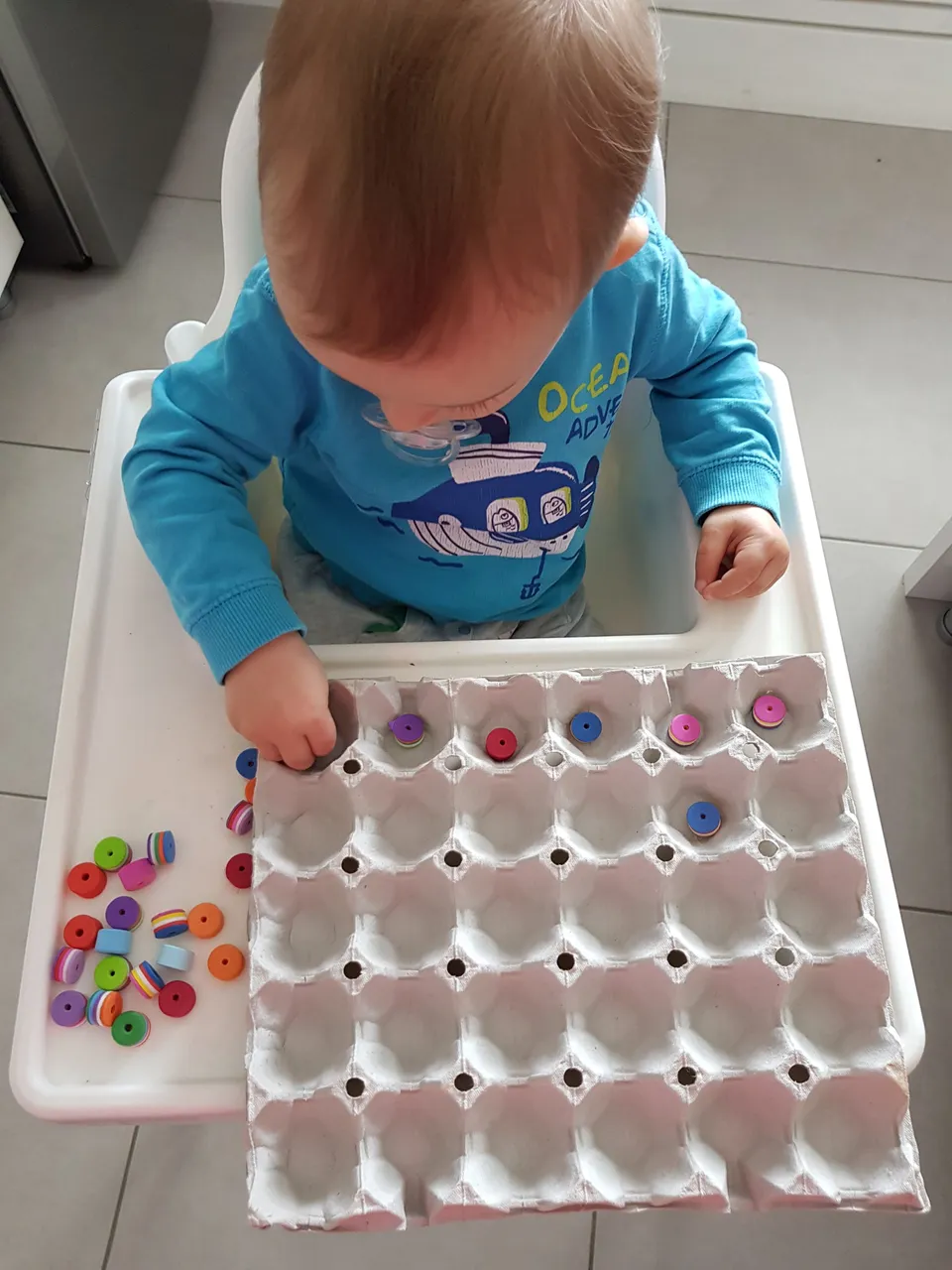 | 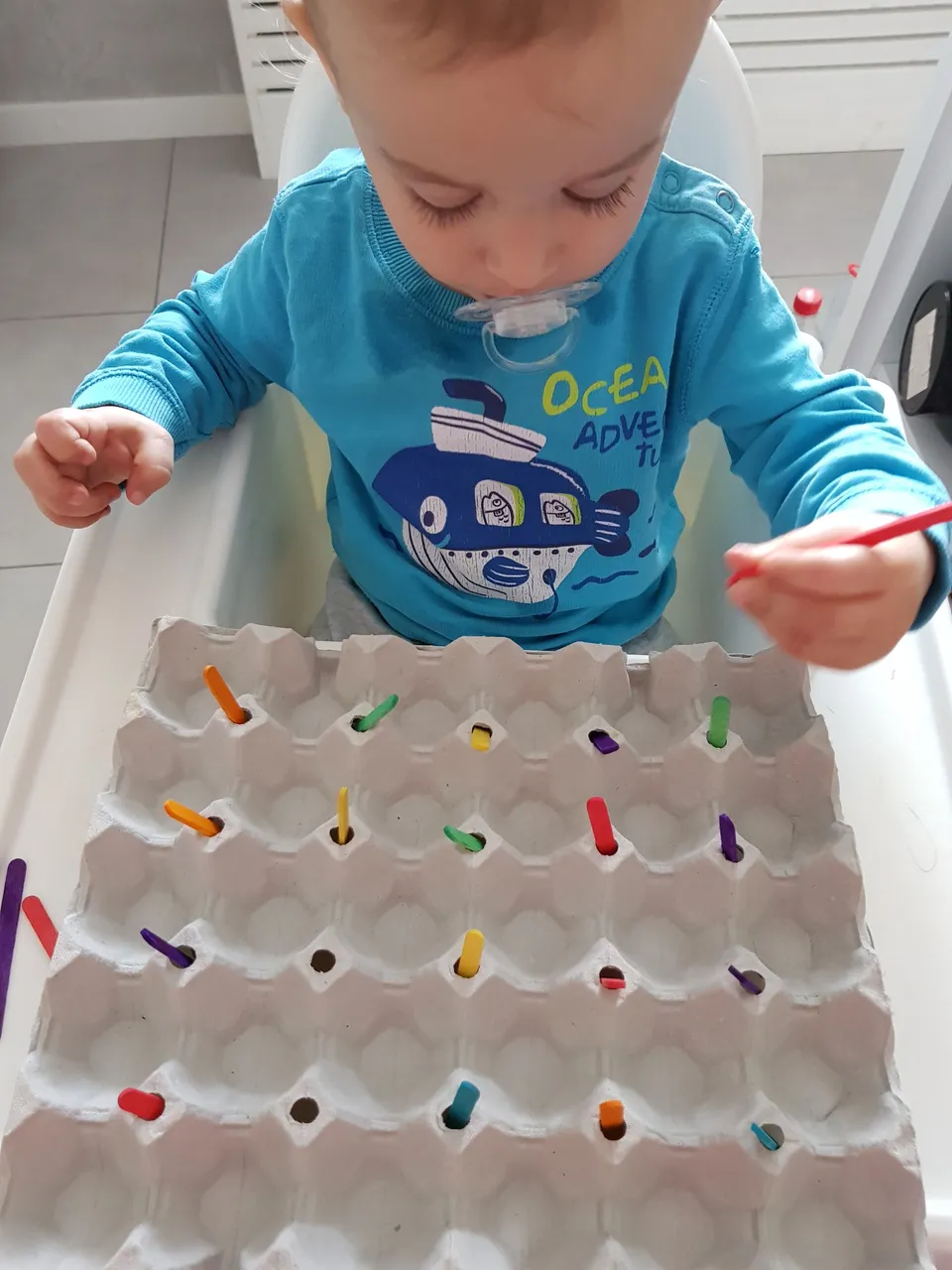 |
|---|
Again, I hope you will find something on my blog to try at home with your kids. Early Education and Learning is really fun, it is considered play and kids don't see it like....learning.
What's very important is to work together slowly, on their own pace. Don't force your kids if they don't want to cooperate.
You can show them the exercise and then put it aside if they don't seem to be interested. Try again next day and the day after. Eventually they will want to try it. Have patience and don't forget later is better than never. Your kids can be older than Caleb when making these activities and that's OK.
I still have TONS of learning activities and I'm going to share them with you every week from now on, in the same format. I hope you'll enjoy them! Stay tuned for more if you're interested!🙂
Have a lovely weekend everyone,
missdeli 💓

